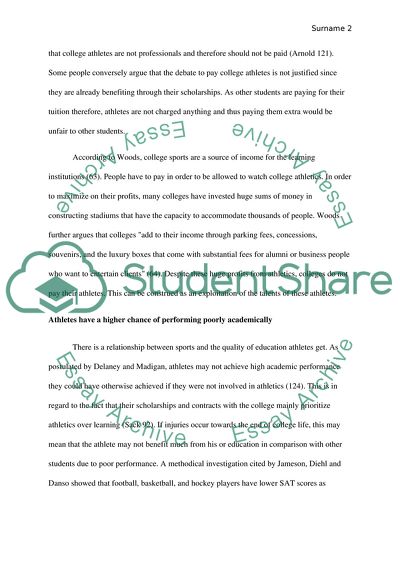Cite this document
(Should College Athletes Be Paid to Play Assignment, n.d.)
Should College Athletes Be Paid to Play Assignment. https://studentshare.org/sports-and-recreation/1848765-should-college-athletes-be-paid-to-play
Should College Athletes Be Paid to Play Assignment. https://studentshare.org/sports-and-recreation/1848765-should-college-athletes-be-paid-to-play
(Should College Athletes Be Paid to Play Assignment)
Should College Athletes Be Paid to Play Assignment. https://studentshare.org/sports-and-recreation/1848765-should-college-athletes-be-paid-to-play.
Should College Athletes Be Paid to Play Assignment. https://studentshare.org/sports-and-recreation/1848765-should-college-athletes-be-paid-to-play.
“Should College Athletes Be Paid to Play Assignment”. https://studentshare.org/sports-and-recreation/1848765-should-college-athletes-be-paid-to-play.


